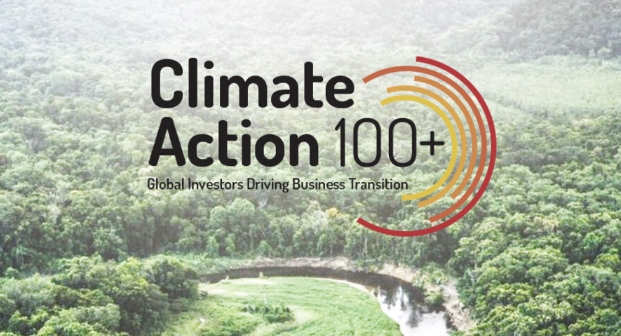Naturally the Big Bankers dress up in trees and rivers… they wouldn’t wear the Dracula Cape when people are looking, would they?
By Jo Nova
The biggest climate bullies on the planet just got a bit smaller. There are two monster climate banker clubs in the world, and yesterday, one of them, the “Climate Action 100+” lost three of the six largest asset management funds in the world, namely JP Morgan Chase, State Street and BlackRock.
State Street manages about $3.6 trillion in funds, JP Morgan Chase about $3 or $4 trillion, and BlackRock $10 trillion, so that’s something like $17,000 billion dollars that just left the ranch. The fact that this kind of money was all grouped together in a cabal of any sort is bad enough, but ponder that now, after the biggest fish have left the tank, there’s still $50 trillion left in assets on the inside.
It appears the Climate Action 100+ group had grown too big for its boots — the new Climate Action 100+ “phase 2” strategy expected asset managers to actively hound companies to cut their emissions.
An ESG Asset Manager Exodus
The Wall Street Journal
The climate alliance’s new rules would compound the legal and political jeopardy. In its withdrawal announcement, State Street said its rules “are not consistent with our independent approach to proxy voting and portfolio company engagement.” BlackRock said the rules “would raise legal considerations.”
Members are supposed to “engage” 170 “focus companies” such as Boeing, Home Depot and American Airlines—that is, threaten to vote against non-compliant corporate directors and back shareholder resolutions that pressure management. Their campaign has had great success with 75% of targeted companies committing to “net zero.”
But the climate left is never content. Last June the alliance impelled its members to publish information on their “engagements” and to explain how and why they voted on shareholder resolutions flagged by the outfit. The point was to embarrass asset managers that climate scolds accuse of being insufficiently committed to the cause.
 Climate Action 100+ sells itself as a group of investors who want to save the world and pressure naughty corporations to behave. The truth is that most of the investors are workers with pensions tied up in funds who have no idea they are in an international cabal. Normal real investors try to make money rather than use their life savings to bully companies into political fantasies like fiddling with the weather. But in the monster funds, it’s the asset managers who decide to join clubs like “Climate 100+” and it’s twin club with the sexy name –the Glasgow Financial Alliance for Net Zero (GFANZ).
Climate Action 100+ sells itself as a group of investors who want to save the world and pressure naughty corporations to behave. The truth is that most of the investors are workers with pensions tied up in funds who have no idea they are in an international cabal. Normal real investors try to make money rather than use their life savings to bully companies into political fantasies like fiddling with the weather. But in the monster funds, it’s the asset managers who decide to join clubs like “Climate 100+” and it’s twin club with the sexy name –the Glasgow Financial Alliance for Net Zero (GFANZ).
Climate Action 100+ started in 2017 and the day before yesterday it had 700 investors who managed $68 trillion in assets, yet mysteriously has no Wikipedia page (like the ghost that walks?). According to InfluenceWatch it was “conceived by members of the California Public Employees’ Retirement System (CalPERS) in 2016 at the French Mission to the United Nations.” So it was set up by the largest government pension fund in the US in cahoots with the UN in order to use workers money to boss around companies and to force left wing policies on right wing states through a back door.
It’s big brother — the other climate banker cabal called GFANZ — was set up in 2021 by the UN and Mark Carney (former governor of the Bank of England). At one point GFANZ grew to an obscenely unbelievable $130 trillion in “funds under management”, giving it the financial power equivalent to a black hole. The largest 20 national economies in the world have a combined GDP of $87 trillion. So when a collective managing $130 trillion says “jump” there are not many Presidents or Prime Ministers inclined to say “No”. In October 2020, the CEO of BlackRock told the Australian government he wanted them to shut coal plants faster and three weeks later, Scott Morrison and the treasurer signed us up for Net Zero, even though the voters had picked them to do less climate action rather than more.
But it was all a big bluff, as I explained — all the giant funds use other people’s money to bully and cajole boards, ministers, and global leaders into doing things that none of them might want. They were supposed to be investing pension funds to earn money for workers to retire on, instead it looked and smelled a lot like they were squandering the returns in order to prop up socialist ideologies, dodgy companies, and to coerce governments to legislate policies that the voters didn’t vote for.
Larry Fink the CEO of Blackrock, and his pals, turned our pension funds into a leftist activist machine. Thankfully 19 US States fought back by asking the legal bombshell questions about whether these funds were cooperating in a way that breached antitrust laws and neglected their fiduciary duty. Ron deSantis in Florida took $2 billion of state pension funds back from Blackrock. It doesn’t sound like much, but it pulled the string on the big bluff, and threatened to unleash an exodus. Now a year later, many funds are backing away slowly.
Make no mistake, the term ESG or Environmental Social Governance is a dead dog, but all these conglomerate Financial Swamp Monsters like BlackRock et al, will still be buying and leveraging up their renewables investments whenever it suits them. They’ll still be flying to Davos to consort and coordinate behind the scenes.
The big funds will still be leaning on governments, but there is more risk other funds will break ranks, offering to fund the projects the cabal don’t want funded. In a free market, it wouldn’t matter a damn if one stupidly large fund said it wouldn’t fund a coal mine because some other fund surely would. That’s why these banker collectives are so profoundly undemocratic and anti-competitive. For their game to work, they have to stop all the other bankers too.
It is after all, why the USA has antitrust laws. It’s why cartels are banned.
So much of the pushback against the banker consortiums comes from the US States:
Mary Chastain, Legal Insurrection
Agricultural officials from 12 states launched probes into ESG investing practices at some big banks. The officials worry that the involvement could “impact food availability, lead to price increases, limit credit access for farmers, and have broad negative economic consequences.”
Tennessee Attorney General Jonathan Skrmetti sued BlackRock, alleging the firm harmed consumers through ESG.
“We allege that BlackRock’s inconsistent statements about its investment strategies deprived consumers of the ability to make an informed choice,” explained Skrmetti
At this point in time the GFANZ cabal still say their members include ANZ, the Bank of America, Barclays, the Bank of New Zealand, Commonwealth Bank, JP Morgan Chase, Goldman Sachs, National Australia Bank, National Bank of Canada, Westpac and a hundred others.
There is still so much to do. But three weeks ago Jamie Dimon, the CEO of JP Morgan, shifted gears — openly saying “Trump was kinda right” and that his supporters deserve respect. I asked at the time if Wall Street was shifting away from the whole poisonous left. Dimon’s statements were game-changing.
We don’t need all the bankers to shift, we just need a few so we have some competition.
Related Posts
The dark bubble: There’s a reason everything seems to be going off the rails simultaneously
- Winning: Antitrust laws slow down the climate plans of $130T monster cartel of UN and global bankers
- 19 US States fight back against BlackRock the Political Climate Police disguised as a Monster Investment Fund
- Well that explains everything: Bankers bullied Australia into Net Zero
Money pile by Andrew McGill
